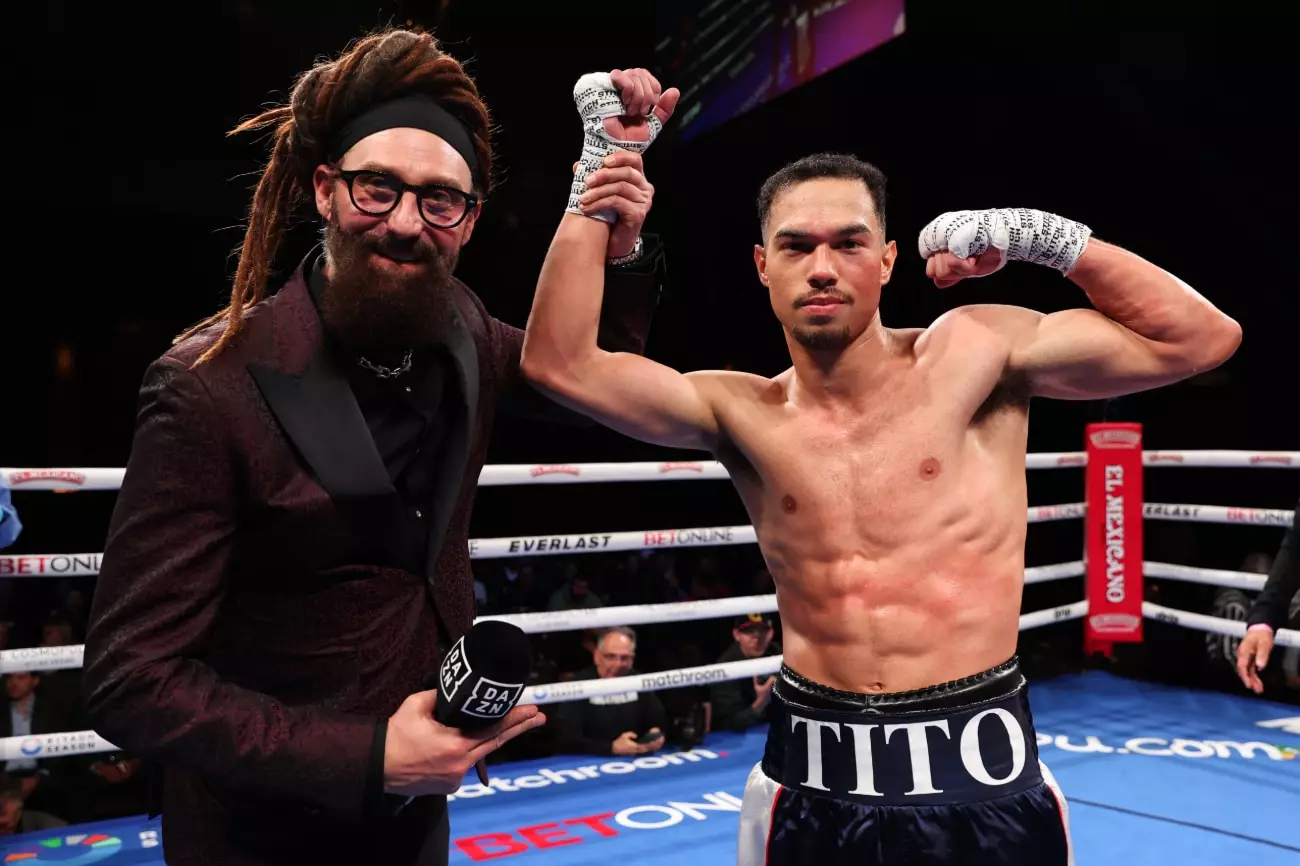The world of boxing is no stranger to rivalries, challenges, and the ever-thickening cloud of clout-chasing. In this context, a recent spat between WBC lightweight champion Shakur Stevenson and up-and-coming light welterweight prospect Ernesto Mercado has caught the attention of boxing aficionados. Following Mercado’s spectacular fourth-round knockout victory over former two-division world champion José Pedraza, the prospect wasted no time in calling out Stevenson, prompting a barrage of comments and a reflection on what constitutes ambition versus mere opportunism in the sport.
Mercado’s brash callout was not just a spontaneous utterance; it appeared masterfully calculated. With an unblemished record of 17-0 and 16 knockouts under his belt, Mercado made a strong statement with his impressive performance, which not only heightened his status but also positioned him on a collision course with bigger names, specifically Stevenson. This begs the question: Is Mercado genuinely keen on testing his mettle against one of boxing’s brightest stars, or is he merely maneuvering for visibility in a highly competitive industry?
From Stevenson’s perspective, the rapid ascent of Mercado undoubtedly elicited feelings of discomfort, evidenced by Stevenson’s awkward response to the callout while seated ringside. Such body language suggests a fighter caught between acknowledgement of a legitimate threat and the innate hesitation that often shadows a champion faced with a rising contender. Stevenson’s dismissive remarks about Mercado being a “clout-chaser” add layers to this dynamic. The term itself wrestles with the implications of legitimacy in boxing. For some, calling out established fighters is a rite of passage; for others, it might come across as desperate posturing in a sport that thrives on authenticity and mutual respect.
Stevenson’s reaction speaks volumes about the psychological toll that the sport can take on its competitors. His self-assured posture as a champion is undercut by his unease when confronted by Mercado, signifying that the young contender presents not just a physical challenge, but also a mental one. Shakur has openly expressed concerns about fighters advancing their careers too quickly, suggesting a certain protectiveness over his position. He intends to defend his title against Floyd Schofield in February, which raises questions about whether he perceives Mercado as a credible challenger or an unnecessary distraction from his current goals.
Analyzing Stevenson’s behavior through the lens of sports psychology offers valuable insights. Fighters often thrive on their mental fortitude, and any hint of vulnerability—such as Shakur’s apparent trepidation—might indicate that Mercado’s power and tenacity weigh heavily. Whether Stevenson is right in viewing Mercado as a mere clout-chaser or recognizing a genuine competitor, the stakes are rising, along with the pressure.
Mercado embodies a different facet of this narrative. His assertiveness and willingness to verbally spar with established names in the sport signify a desire not only to be recognized but to earn his place among boxing’s elite. “I talk, and I back it up. I’m from Pomona,” Mercado remarked, embodying a fighter’s ethos that champions both bravado and skill. This claim to authenticity speaks to the heart of Mercado’s aspirations, setting him apart from those who merely seek attention without the accompanying performance.
His rejection of Stevenson’s narrative about clout-chasing also merits discussion. For Mercado, engaging with Stevenson isn’t just about attention; it’s about establishing a legacy. His comments suggesting that getting into the ring with Stevenson would be a career-defining moment underscore that ambition is intrinsically tied to action in the boxing world. The juxtaposition of Mercado’s fierce desire to challenge high-profile fighters against Stevenson’s reluctance encapsulates the tension between burgeoning talent and established champions.
The exchange between Shakur Stevenson and Ernesto Mercado emphasizes the nuanced dance of ambition, risk, and reputation that characterizes boxing today. While Stevenson focuses on maintaining his champion status, wary of potential threats from rising stars, Mercado embodies the restless spirit of youth eager to assert itself against the established order, challenging norms in the process.
As fans, we are left to ponder whether Mercado is indeed “clout-chasing” or whether he represents the next wave of fighters ready to impose their will on a sport steeped in tradition. The convergence of their paths is not merely about weight classes; it signifies the shifting sands of ambition in boxing. Ultimately, both fighters have much to prove, and if their paths cross in the ring, it will not only carry implications for the fighters involved but also for the future of their respective careers and the sport itself.


Leave a Reply